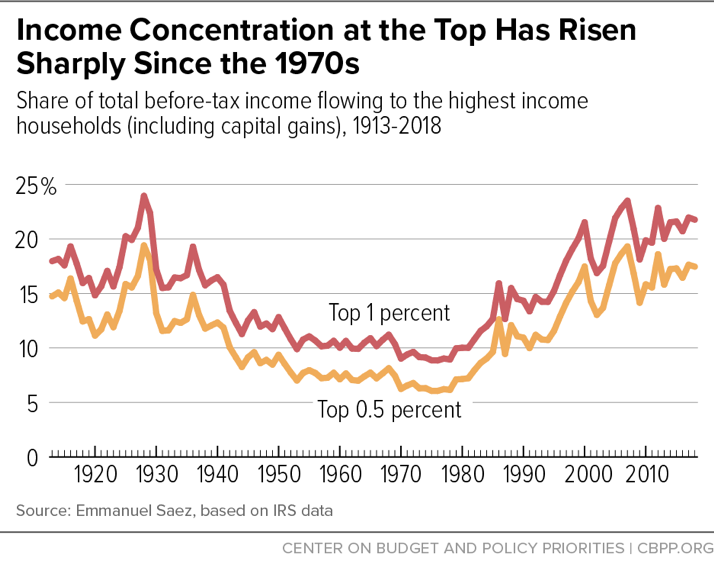Senator
Thinks s/he gets paid by the post
Its interesting how some posters are referring to past times and how it is just "politics pure and simple". The fact is, that income inequality is rising. What most people feel were the USA's most golden economic years (1950's / 60's) was when income inequality was much less than it is now.
History doesn't always repeat, but we should learn from it. Rising inequality can lead to populist outcomes. Back from the late 1800's to early 1900's we had rising inequality and eventually this lead to the unions and social insurance systems despised by many.
So when people think, "I got mine all on my own, go get your own on your own"...you may end up being part of what creates a populist surge that will lead to new social insurance policies that will inevitably tax you.
Look at the below chart and think about it in the context of the timing of the introduction of social security, the rise and fall of trade unions, medicare etc.
I do find those income inequality statistics interesting. My personal thought is that when the social safety net becomes more and more comfortable, people get satisfied and lose the desire to achieve more. A great example of this is why people collect social security at 62, rather than wait. They have enough, so why go for anything more. It begins to exasperate the situation.
Life is like a chess game, and you are playing against life circumstances. If you can see six moves ahead, you have the ability to mitigate the risk. If you can see 10 moves ahead, you have an even better opportunity.
If you only see the next move, you are destined to lose.




